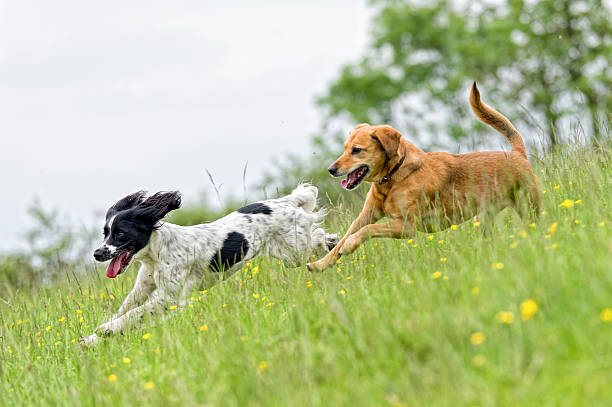Top Foods to Avoid Feeding Your Dog

As a dog owner, it's natural to want to share delicious treats and meals with your furry friend. However, it's essential to remember that not all human foods are safe for dogs. While some foods can be harmless or even beneficial, others can pose significant risks to their health and well-being. In this blog post, we will explore some of the top foods that dogs should avoid, helping you make informed decisions when it comes to your pup's diet.
Chocolate:
Chocolate is a well-known toxin for dogs and should be strictly off-limits. It contains theobromine, a compound that dogs metabolize slowly, leading to toxic levels in their bloodstream. Even small amounts of chocolate can cause symptoms like vomiting, diarrhea, rapid breathing, increased heart rate, and, in severe cases, seizures or even death. Ensure all chocolate products, including cocoa powder and baking chocolate, are kept well out of reach of your canine companion.
Grapes and Raisins:
Grapes and raisins may seem like harmless snacks, but they can be toxic to dogs, potentially leading to kidney failure. The exact toxic substance within these fruits is still unknown, making it difficult to determine a safe dosage. As a responsible pet owner, it's best to avoid feeding your dog any grapes or raisins, regardless of their size or breed.
Onions and Garlic:
Onions and garlic contain compounds that can damage a dog's red blood cells, leading to a condition known as hemolytic anemia. Whether raw, cooked, powdered, or in any form, these ingredients should be kept far away from your dog's food bowl. Regular ingestion of even small amounts of onion or garlic can cause weakness, vomiting, diarrhea, and, in severe cases, even organ damage.
Xylitol:
Xylitol is a common sugar substitute found in many sugar-free products, such as chewing gum, candies, and baked goods. It can cause a rapid release of insulin in dogs, leading to a dangerous drop in blood sugar levels. Ingestion of xylitol can result in symptoms like vomiting, loss of coordination, seizures, and, in severe cases, liver failure. Be vigilant about reading product labels and ensure that your dog does not have access to items containing xylitol.
Alcohol:
Alcohol is extremely dangerous for dogs. Even small amounts can cause significant damage to their liver and brain. Dogs are much more sensitive to alcohol than humans, so it's crucial to avoid giving them any alcoholic beverages or foods cooked with alcohol. Symptoms of alcohol ingestion in dogs include disorientation, vomiting, difficulty breathing, and even coma.
Avocado:
While avocados offer numerous health benefits for humans, they contain a substance called persin that can be toxic to dogs. While the flesh of an avocado is less problematic, the pit, skin, and leaves contain higher concentrations of persin. Ingestion of these parts can lead to digestive issues, vomiting, and pancreatitis. It's best to keep avocados out of your dog's reach and prevent them from nibbling on any discarded parts.
As dog owners, we have a responsibility to provide our furry friends with a safe and healthy diet. While it's tempting to share our favorite foods with them, it's crucial to be aware of the potential dangers that certain human foods can pose. By avoiding foods like chocolate, grapes, onions, garlic, xylitol, alcohol, and avocados, we can protect our beloved pets from unnecessary harm. Always consult with your veterinarian if you suspect your dog has ingested any harmful foods or if you have questions about their diet. Remember, a well-balanced and dog-friendly diet.
Chocolate:
Chocolate is a well-known toxin for dogs and should be strictly off-limits. It contains theobromine, a compound that dogs metabolize slowly, leading to toxic levels in their bloodstream. Even small amounts of chocolate can cause symptoms like vomiting, diarrhea, rapid breathing, increased heart rate, and, in severe cases, seizures or even death. Ensure all chocolate products, including cocoa powder and baking chocolate, are kept well out of reach of your canine companion.
Grapes and Raisins:
Grapes and raisins may seem like harmless snacks, but they can be toxic to dogs, potentially leading to kidney failure. The exact toxic substance within these fruits is still unknown, making it difficult to determine a safe dosage. As a responsible pet owner, it's best to avoid feeding your dog any grapes or raisins, regardless of their size or breed.
Onions and Garlic:
Onions and garlic contain compounds that can damage a dog's red blood cells, leading to a condition known as hemolytic anemia. Whether raw, cooked, powdered, or in any form, these ingredients should be kept far away from your dog's food bowl. Regular ingestion of even small amounts of onion or garlic can cause weakness, vomiting, diarrhea, and, in severe cases, even organ damage.
Xylitol:
Xylitol is a common sugar substitute found in many sugar-free products, such as chewing gum, candies, and baked goods. It can cause a rapid release of insulin in dogs, leading to a dangerous drop in blood sugar levels. Ingestion of xylitol can result in symptoms like vomiting, loss of coordination, seizures, and, in severe cases, liver failure. Be vigilant about reading product labels and ensure that your dog does not have access to items containing xylitol.
Alcohol:
Alcohol is extremely dangerous for dogs. Even small amounts can cause significant damage to their liver and brain. Dogs are much more sensitive to alcohol than humans, so it's crucial to avoid giving them any alcoholic beverages or foods cooked with alcohol. Symptoms of alcohol ingestion in dogs include disorientation, vomiting, difficulty breathing, and even coma.
Avocado:
While avocados offer numerous health benefits for humans, they contain a substance called persin that can be toxic to dogs. While the flesh of an avocado is less problematic, the pit, skin, and leaves contain higher concentrations of persin. Ingestion of these parts can lead to digestive issues, vomiting, and pancreatitis. It's best to keep avocados out of your dog's reach and prevent them from nibbling on any discarded parts.
As dog owners, we have a responsibility to provide our furry friends with a safe and healthy diet. While it's tempting to share our favorite foods with them, it's crucial to be aware of the potential dangers that certain human foods can pose. By avoiding foods like chocolate, grapes, onions, garlic, xylitol, alcohol, and avocados, we can protect our beloved pets from unnecessary harm. Always consult with your veterinarian if you suspect your dog has ingested any harmful foods or if you have questions about their diet. Remember, a well-balanced and dog-friendly diet.














